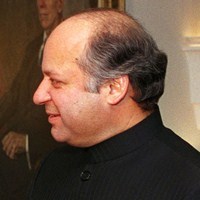The victory by the Pakistan Muslim League-N (PML-N), led by former Prime Minister Nawaz Sharif, in this weekend’s national elections offers the United States a timely opportunity to develop and execute a strategy for improving the deeply troubled relationship with Pakistan.
Polling data show that Pakistanis have extremely negative views of U.S. policies and blame Americans for many of the difficulties bedeviling the country. In addition to irritation at Washington’s close ties to India and its use of drones on Pakistani territory, Pakistanis believe that U.S. policies contributed to the rise of militant Islamist groups within their borders, and that Washington subsequently provided insufficient aid—and respect—despite Pakistani’s front-line status in the war on terror. Meanwhile, U.S. officials are concerned by Sharif’s campaign statements that he would reduce Pakistani military efforts against the Taliban.
Although the Obama administration has defined detailed goals for what it would like to achieve in Afghanistan, as well as developed strategies and programs for attaining them, U.S. officials have yet to do the same for Pakistan, notwithstanding that country’s larger population, superior military potential and more important location. Like Afghanistan, Pakistan has thousands of Islamist terrorists eager to kill Americans, but it also has nuclear weapons whose security from diversion to these militants has always been feared.

